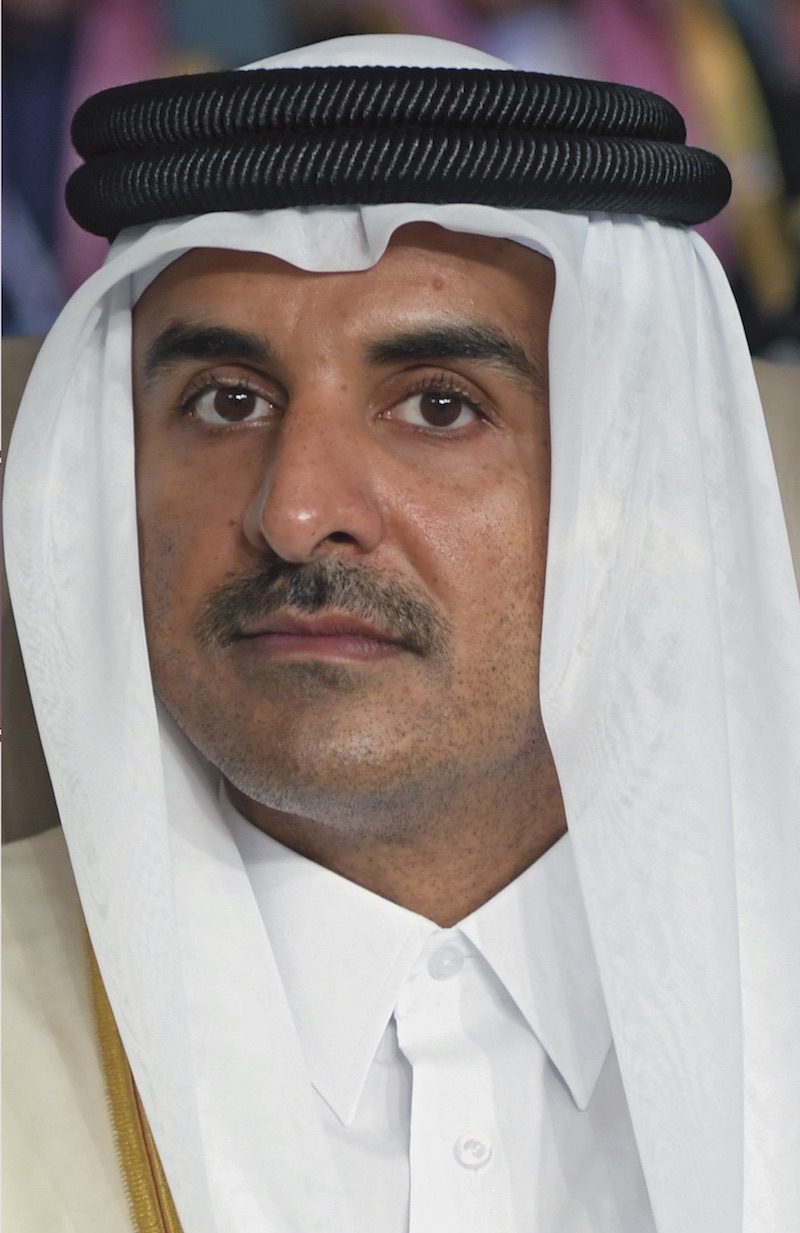Hamid Mir is a prominent Pakistani journalist, columnist, and television host. Over his extensive career, Mir has gained recognition for his fearless reporting and outspoken stance against the Pakistani Establishment, advocating for press freedom and human rights. He has survived two assassination attempts and faced multiple bans from television. Mir began his journalism career with Daily Jang in 1987 and joined Geo News in 2002, where he still hosts the political talk show Capital Talk. He is one of the few journalists to have interviewed Osama bin Laden after the September 11 attacks. Despite threats and challenges, Mir continues to be an influential voice in journalism, both nationally and internationally. His work has earned him several prestigious awards, including the Hilal-i-Imtiaz and the SAARC Lifetime Achievement Award.
Birth: 3 June 1980 (Age: 45)
Source of Influence: Political
Influence: Ruler of richest country per capita in the world
School of Thought: Sunni, Hanbali
Status: Featured in current year
HH Sheikh Tamim bin Hamad Al-Thani became the Emir of Qatar at the age of 33 after his father, Sheikh Hamad bin Khalifa Al-Thani, abdicated in June 2013. Qatar is the richest country in the world with a GDP per capita of $84k. It has under 400,000 citizens whilst the rest of its population of 3 million are expatriate workers. It is the top exporter of liquefied natural gas and the site of the third largest natural gas reserves in the world.
Family: Sheikh Tamim is Sheikh Hamad’s fourth son and was chosen as Crown Prince in August 2003. His mother is the powerful Sheikha Moza, who still plays a prominent public role as an advocate for social and educational causes.
Education: Sheikh Tamim completed his studies at a private school in the UK before going on to graduate at the Royal Military Academy in Sandhurst (in 1998). During his time as Crown Prince (2003-13), Sheikh Tamim had exposure to a wide range of posts including security (he was deputy commander of the armed forces), economics (chairman of the Qatar Investment Authority) and sports. He supervised Qatar’s successful bid to host the 2022 FIFA World Cup.
Expectations: Qatar exploded onto the world scene under his father’s reign, and Sheikh Tamim has consolidated these achievements. Packing a punch far above its weight has led to neighbouring countries questioning the purpose of so many initiatives. He has had to repair relations with other Gulf countries over supporting the Muslim Brotherhood and defend Qatar’s world image over the treatment of labourers in Qatar.
Blockade: In June 2017, Saudi Arabia, the United Arab Emirates, Bahrain, and Egypt, with the backing of the Trump administration, cut all relations with Qatar and imposed trade and travel bans. This drastic action resulted from various claims that Qatar was supporting terrorism and had violated a 2014 agreement with GCC countries. Its good relations with Iran and its hosting Al-Jazeera TV network were also factors in this tense situation which saw foodstuff imported from Iran and Turkish soldiers called in to help safeguard Qatar assets. A further complicating factor in this feud was that Qatar hosts the largest American base in the Middle East and all the blockade partners are close allies of the US. The 43-month blockade was finally lifted in January 2021, having made little impact.
Investor: Qatar continues to increase its influence through major investments globally. The Qatar Investment Authority has over $475bn in assets ensuring it is a major player in global finance.
FIFA World Cup 2022: The 2022 FIFA World Cup was a great success. The vast logistical challenge was met and the actual football produced one of the best world cups in history. In an iconic moment, the Emir of Qatar put a bisht, a traditional Arab cloak, on Argentina captain Lionel Messi during the World Cup trophy presentation after Argentina’s win over France in the final.
Peace Broker: Qatar has positioned itself into the role of peace broker. It hosted the historic signing of a peace deal between the US and the Taliban in 2020 which led to the full withdrawal of US troops from Afghanistan. It has facilitated the return of prisoners and hostages between Russia and Ukraine. In November 2023, it brokered a ceasefire between Israel and Hamas which led to the release of about 700 Palestinian prisoners and 100 Israeli hostages. Doha has also been home to several rounds of negotiation for a ceasefire in the Gaza war. It has adopted a strong position of proactive engagement through dialogue with regional neighbours.
“How beautiful it is for people to put aside what divides them in order to celebrate their diversity and what brings them together at the same time.”
$83 thousand GDP per capita
563 kilometers of coastline
News about Emir Tamim bin Hamad Al-Thani
- No approved news items yet.



